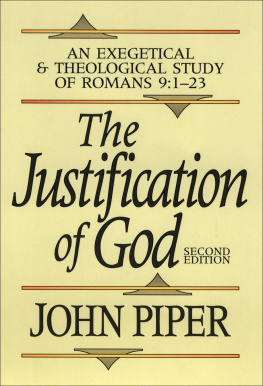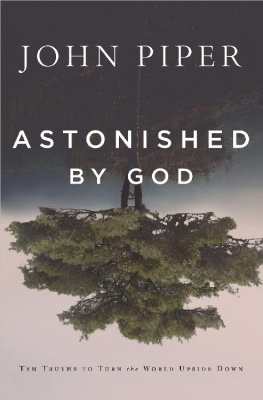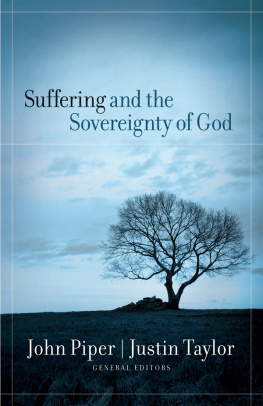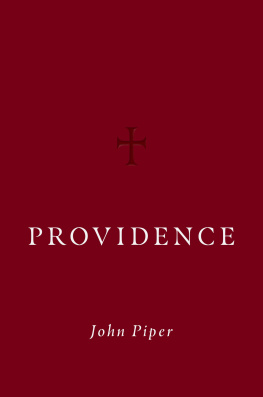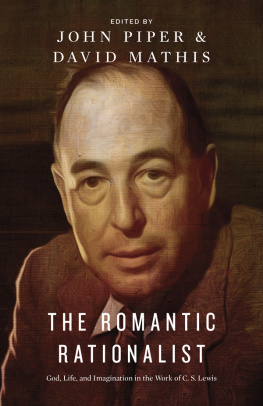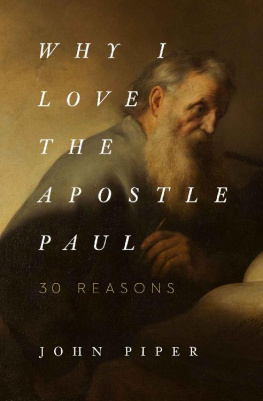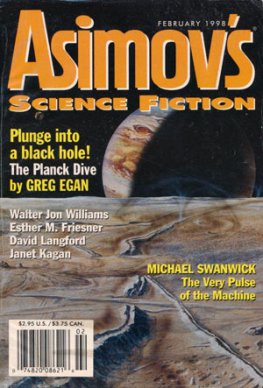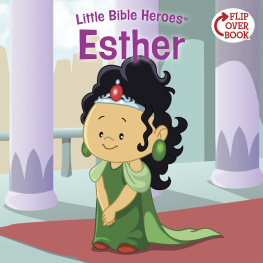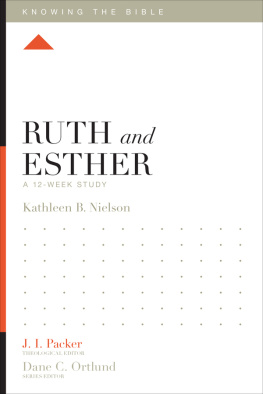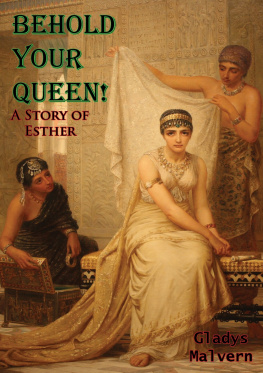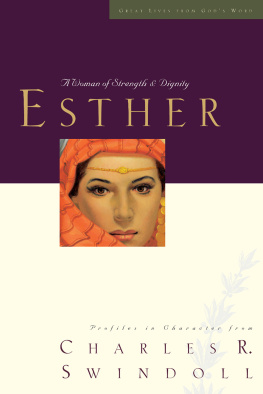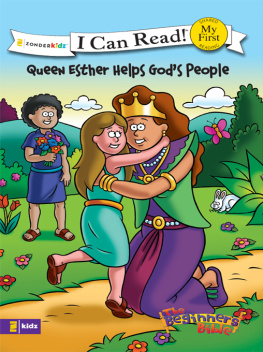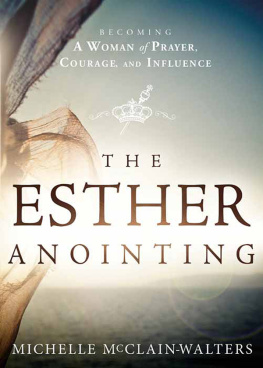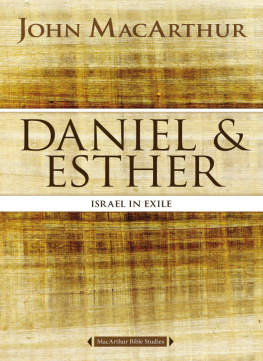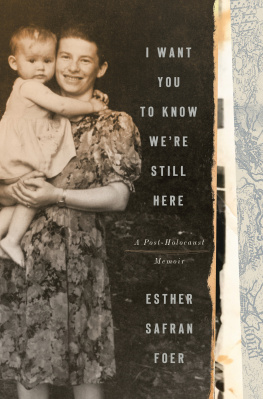Thank you for downloading this Crossway book. Sign-up for the Crossway Newsletter for updates on special offers, new resources, and exciting global ministry initiatives:
The Innkeeper The Misery of Job and the Mercy of God The Prodigals Sister Ruth Velvet Steel
1300 Crescent Street Wheaton, Illinois 60187 All rights reserved. No part of this publication may be reproduced, stored in a retrieval system, or transmitted in any form by any means, electronic, mechanical, photocopy, recording, or otherwise, without the prior permission of the publisher, except as provided for by USA copyright law. Cover and interior paintings: Glenn Harrington, Shannon Associates Cover design: Josh Dennis Interior design and typesetting: Kevin Lipp First printing 2012 Printed in China Scripture quotations are from the ESV Bible (
),copyright 2001 by Crossway. Used by permission. All rights reserved.
All emphases in Scripture quotations have been added by the author. Hardcover ISBN: 978-1-4335-3418-8 PDF ISBN: 978-1-4335-3419-5 Mobipocket ISBN: 978-1-4335-3420-1 ePub ISBN: 978-1-4335-3421-8
Library of Congress Cataloging-in-Publication Data Piper, John, 1946 Esther / John Piper ; illustrated by Glenn Harrington. p. cm. ISBN 978-1-4335-3418-8 (hc) 1. I. Title. Title.
PS3566.I59E88 2012 2012007327 811'.54dc23 Crossway is a publishing ministry of Good News Publishers. OGP 21 20 19 18 17 16 15 14 13 12
15 14 13 12 11 10 9 8 7 6 5 4 3 2 1
WHATS BEHIND THIS POEM?
E very Advent season for twenty-seven years I wrote narrative poems as a kind of Christmas gift to the church I pastor. Esther is one of those gifts. I have loved poetry since I was a teenager. It has always seemed plain to me that the imagination is a gift of God and is meant to reflect his own creativity. He thought up the universe out of nothing, then created us in his own image.
So we do that kind of thing. Not that very thing. But that kind of thing. Only God creates out of nothing. We are not God. But we are like him when we create.
Perhaps this is why I feel so at home when writing poetry. I dont mean I feel relaxed or in control. I usually dont. I mean: this is who I amwho God made me to be. A creator, a maker. I suspect that deep down thats the way we all feel when we are making what God made us to make.
A poem is not necessarily a better thing to make than a birthday cake, or a rose garden, or a website. But it is one of the things I love to make. What I mean by poetry is this: An effort to share a moving experience by using language that is chosen and structured differently from ordinary prose. Sometimes it rhymes. Sometimes it doesnt. Sometimes it has a regular cadence.
Sometimes it doesnt. But almost always the poet has experienced somethingsomething horrible or wonderful or ordinaryand he feels that he must share it. Using words differently from ordinary prose is his way of trying to awaken something of this experience (and more) in the reader.
When I read the Bible, I experience God. This is the astonishing power and dignity God has given to his Word. He meets us there.
The L ORD revealed himself to Samuel at Shiloh by the word of the L ORD (1 Sam. 3:21). This is amazing. We meet God himself by the Word. And when we do, we are affected. It may be terror, or it may be ecstasy, or it may be an inexpressible peace.
But for poets, at least, experiencing something inexpressible does not mean silence. Its precisely the inexpressible something that poetry is meant to help us see or feel. If it were merely expressibleif there were nothing ineffable about itthere would be no need for a poem. But everywhere in the Bible we meet reality that exceeds our comprehension. We must find a way to at least point or suggest or hint. Its too wonderfulor too somethingto keep to ourselves.
So it is with the book of Esther. This book never mentions God. But he is everywherethe invisible hand that moves empires for the sake of his people. The invisibility of his name in the book is a pointer to the invisibility of his majestic rule in history. Human designs are inexorably undone. And the way God turns the tables is breathtaking.
The king cant sleep. So someone reads to him the royal records of memorable deeds. All of this just so that Haman, the arrogant Jew hater, by a fluke encounter, would be forced to honor Mordecaithe Jew (Esther 6). Such things are everywhere in this book. The invisible God is everywhere behind them. Just as he was at Golgotha.
I wont try to say in this introduction what moved me most in reading Esther. Thats what the poem is for. But I will say how I go about it. I retell the story by filling in possibilities of what might have been, mingled with what really was. My aim is to respect what really was by creating nothing that could not have been. Nothing has been changed in the biblical story.
And what has been created is not Scripture. It is meant to awaken us to the wonder of what is really there. Here are some historical facts that we know:
These are the historical realities I try to honor in my retelling of Esthers story. Dont get bogged down trying to figure out genealogies.
Perhaps a short comment on reading poetry would be helpful.
Perhaps a short comment on reading poetry would be helpful.
Beware of thinking the line breaks signal pauses or emphases. They dont. They will do their best work for you if you ignore them. Only pause when there is a punctuation mark. This way the stilted sound we associate with bad poems (ta-DA ta-DA ta-DA ta-DA, pause, ta-DA ta-DA ta-DA) will be, happily, avoided. There is a cadence that matters.


